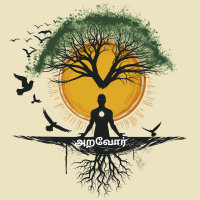Those who neglect introspection often chase fleeting desires without grasping life’s essence. For instance, someone constantly yearning for material possessions without contemplating deeper fulfillment might accumulate possessions endlessly, seeking fulfillment in external acquisitions rather than inner contentment. Reflection on life’s meaning and one’s values can lead to more meaningful aspirations, transcending mere wish lists to pursue goals aligned with personal growth and fulfillment.
People who fail to reflect, pause and understand the character of “life” often make endless wish lists. #337
Start by setting aside time each day for quiet reflection, perhaps before bed or upon waking. Consider what truly brings joy and meaning beyond immediate gratification. Journaling thoughts and feelings can help clarify desires and values. When making decisions, pause to ponder if they align with long-term goals and values. Practice gratitude for what you have rather than fixating on what you lack. Engage in activities that nourish your soul and foster personal growth. By integrating reflection into daily life, you’ll cultivate a deeper understanding of yourself and live with purpose beyond superficial wishes.
Self-reflection is the process of turning inward to examine your thoughts, feelings, actions, and motivations. It helps you understand yourself better, align your actions with your values, and make meaningful changes in your life.
Why Self-Reflection Matters
- Awareness: Helps you understand who you are, your strengths, and your weaknesses.
- Growth: Allows you to learn from experiences, identify patterns, and make better decisions.
- Clarity: Brings focus to your goals, priorities, and purpose.
- Emotional Regulation: Encourages processing feelings and improving relationships.
How to Practice Self-Reflection
1. Set Aside Quiet Time
- Find a calm environment free of distractions.
- Allocate regular time for reflection (e.g., 10 minutes daily or an hour weekly).
2. Ask Meaningful Questions
- Use prompts to dive deeper into your thoughts and actions:
- What went well today? What didn’t?
- How did I handle challenges or conflicts?
- Am I living according to my values?
3. Write It Down
- Keep a journal to record your reflections.
- Writing helps clarify thoughts and serves as a record of your growth.
4. Focus on Patterns
- Look for recurring themes in your thoughts, emotions, and behaviors.
- Identify habits or beliefs that may be holding you back.
5. Be Honest and Kind
- Self-reflection isn’t about judgment or guilt. It’s about growth.
- Approach yourself with kindness and curiosity.
6. Set Intentions
- After reflecting, decide on actionable steps for improvement or change.
- Focus on small, achievable goals.
Questions for Self-Reflection
Daily Reflection:
- What made me happy today?
- What could I have done differently?
- Did I act in line with my values?
Emotional Reflection:
- How am I feeling, and why?
- Did I express my emotions in a healthy way?
- What triggered any negative feelings, and how can I address them?
Growth Reflection:
- What lessons have I learned recently?
- What skills or habits am I working to improve?
- What’s one thing I want to do better tomorrow?
Long-Term Reflection:
- Where do I see myself in 5 years?
- What legacy do I want to leave behind?
- Am I investing my time in what truly matters?
Benefits of Self-Reflection
- Improved Decision-Making: By understanding your patterns, you make better choices.
- Stronger Relationships: Recognizing how your actions affect others helps improve communication.
- Enhanced Well-Being: Reduces stress, increases mindfulness, and brings clarity.
Tools for Self-Reflection
- Journaling: Use prompts or free-write to explore your thoughts.
- Meditation: Practice mindfulness to observe your thoughts non-judgmentally.
- Feedback from Others: Ask trusted friends or mentors for their perspective.
- Apps: Use tools like Daylio or Reflectly for guided reflections.
Self-reflection is a journey. The more consistent you are, the deeper your understanding of yourself will become, leading to greater personal growth and fulfillment.
